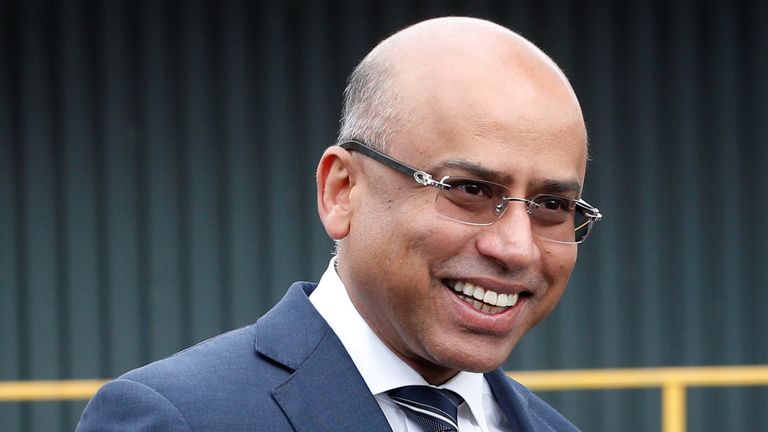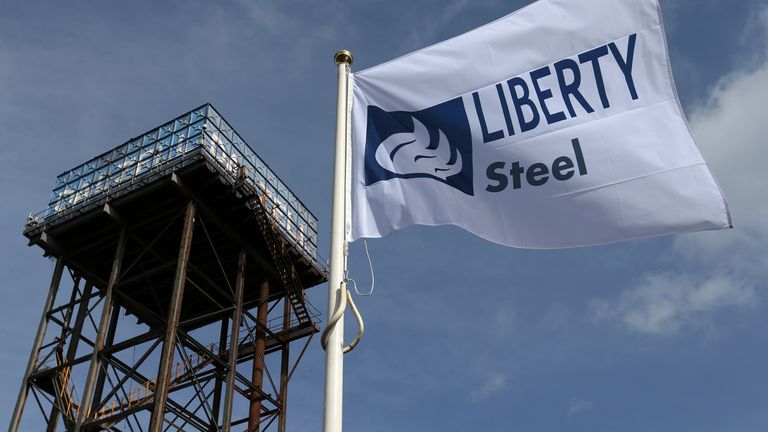Greensill Capital potentially broke COVID emergency loan scheme rules, NAO says
Greensill Capital potentially broke the rules of the government’s coronavirus emergency loan schemes, lending hundreds of millions of pounds to Sanjeev Gupta’s business empire and leaving the taxpayer exposed.
According to an investigation by the National Audit Office (NAO), the now defunct finance firm made seven loans of £50m to companies with connections to the Gupta Family Group Alliance (GFG), owner of Liberty Steel.
Six of them were made on the same day.
This is despite the fact that the scheme’s rules did not allow lending of over £50m to one company or group without prior permission.
The loans could cost the taxpayer £335m and they raised such a red flag to officials that government-backed lending by Greensill was paused shortly after.
The loans in question were made under the Coronavirus Large Business Interruption Loan Scheme (CLBILS), one of the emergency lending schemes set up by the government to help struggling businesses at the onset of the pandemic.
The government committed to guaranteeing 80% of the loans under this scheme.
Greensill Capital was one of 27 CLBILS-accredited lenders, but one of just three that weren’t established banks.
It was approved to lend up to £400m under the scheme. The NAO report says it was made clear to Greensill that there was a maximum lending limit of £50m per borrower group.
Despite this, seven of the eight CLBILS loans made by Greensill were to companies in Mr Gupta’s business empire, totalling £350m.
Six of the £50m loans were made on the same day – 30 September.
The activity was so concerning that the British Business Bank, the group responsible for accrediting lenders, moved to block Greensill from further lending on 13 October.
The report also sheds light on how unusual the lending pattern was.
Although lenders were allowed to lend up to £50m, most did not, and the average loan under CLBILS was just £3m.
In fact only 17 of 698 CLBILS loans were for the maximum amount – eight of which were lent by Greensill, making it the fifth-largest lender on the scheme by value.
GFG is an unusual collection in that the firms are linked through their ownership by Mr Gupta and his family, but they are not formally part of a group.
Greensill maintained it considered the loans to be compliant.
Greensill Capital became a household name in March when it collapsed, leaving the future of its key client Liberty Steel in doubt.
There has also been controversy over former prime minister David Cameron’s role lobbying current government ministers on behalf of the troubled financial services company.
The NAO’s investigation did not explore the firm’s links to government but it did report on the “unusual” interest taken by the Department for Business, Energy & Industrial Strategy (BEIS) into Greensill’s accreditation as a lender.
The report details how updates on the accreditation process were repeatedly requested, with eight email enquiries sent over 19 weeks.
The department told the NAO it did so as it knew Greensill could potentially provide support to Liberty Steel, and if Greensill was not accredited it would need to consider alternatives.
The National Audit Office said that the British Business Bank had been in a hurry to get money to businesses as quickly as possible and this meant it didn’t necessarily have the time to question Greensill further before accrediting it as a lender.
It explained that the bank placed greater reliance on audit checks after it accredited lenders rather than due diligence before, in order to speed up the process.
However, it was given credit for acting quickly and decisively when suspected breaches had been made.
British Business Bank chief executive Catherine Lewis La Torre said: “The British Business Bank acknowledges, as the report does, that in the case of Greensill, applying a less streamlined process might have led the bank to further question Greensill’s application.
“A less streamlined accreditation process would, however, have been lengthier, meaning that fewer lenders may have been accredited, and fewer businesses would have received the critical finance they needed.”
Meg Hillier MP, chair of the committee of public accounts said: “Sadly, it is clear that some of this mess could have been avoided with more thorough due diligence on Greensill upfront.
“As with many of the decisions made during the pandemic, there are important lessons for the government about the trade-off between speed and accuracy in its emergency response.”


